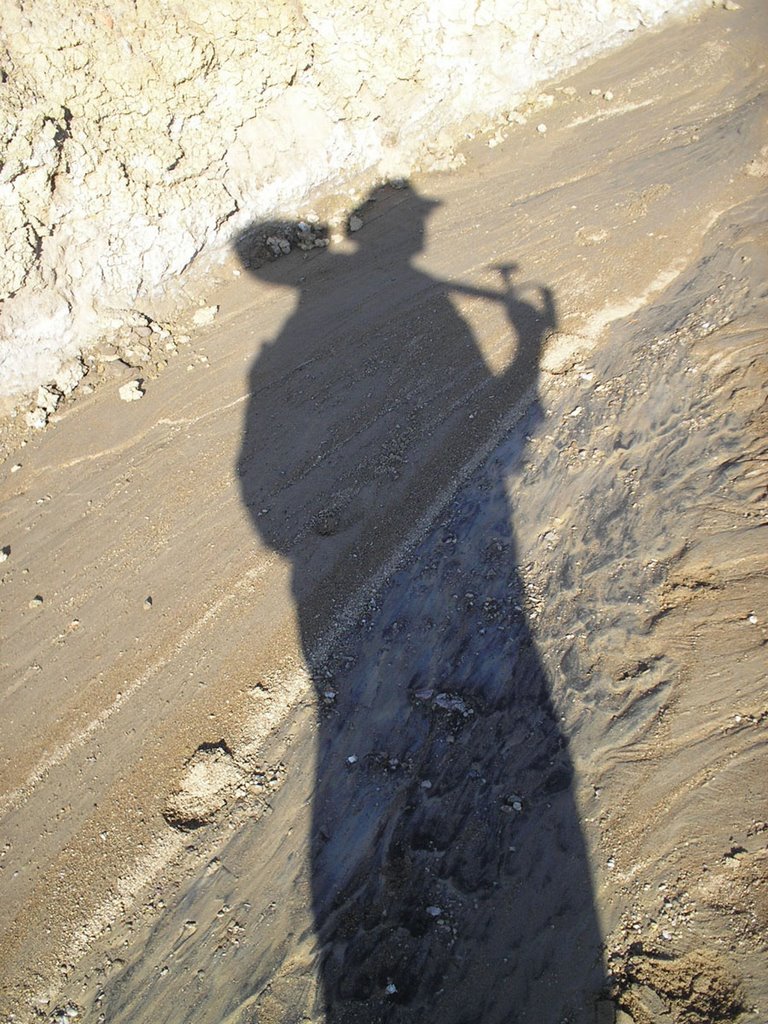The Evolutionary Pathway of Dr. Vector's Book Club
 Evolutionary Pathways in Nature, by John C. Avise of UC Irvine, reads great on the crapper. The book is just under 300 pages long, and that's including a readable intro on phylogenetic character mapping (PCM), a glossary, references, and an index. The 200 pages of meat cover 67 examples of evolution, at about 3 pages per example. "Evolution of what?", you ask. Damn near everything. Magnetotaxis in bacteria. Bipedal hopping in kangaroos. Caterpillars that get ants to feed them their own larvae. Eusocial shrimp. Fish placentas. Cryptic elephant species. Poisonous birds. Parental care in land crabs. The origins of everything from HIV to Afrotheria.
Evolutionary Pathways in Nature, by John C. Avise of UC Irvine, reads great on the crapper. The book is just under 300 pages long, and that's including a readable intro on phylogenetic character mapping (PCM), a glossary, references, and an index. The 200 pages of meat cover 67 examples of evolution, at about 3 pages per example. "Evolution of what?", you ask. Damn near everything. Magnetotaxis in bacteria. Bipedal hopping in kangaroos. Caterpillars that get ants to feed them their own larvae. Eusocial shrimp. Fish placentas. Cryptic elephant species. Poisonous birds. Parental care in land crabs. The origins of everything from HIV to Afrotheria.Avise is a adroit writer. Three pages is not a lot of space in which to explain anything, but his descriptions of these biological mysteries and their elucidation by PCM are masterpieces of concision and tidiness. And he does not shrink from discussing the limitations and complications of the studies where they arise. Every example includes a tree with characters mapped on. I will keep this book close when I am writing my next paper, and hopefully turn out something a little more elegant.
If you're tired of seeing phylogenetic analyses that don't seem to tell us anything about, you know, critters and whatnot, or if you're tired of reading speculative wiffle with no phylogenetic grounding, or if you're just plain tired and can only muster five minutes of attention before you sack out at the end of the day, this is the book for you. Three pages is doable, by anybody, under just about any circumstances. If you can take more, go for it. I like the book as an evolutionary analogue of the 1001 Nights, with Avise standing in for Scheherazade, but there is more here than a big pile of short reads. Reading the stories--and they are stories, and therein lies much of their charm--is like watching the stars come out at night. The first one is a little gem, and so is the second, and third, and the fourth. But soon they add up to something that is vast, awesome, and humbling.
But also exhilarating. Like the night sky, the tree of life has the complementary virtues of being knowable--thus inviting exploration--and inexhaustible, so that we need not fear running out of marvels to wonder at. (Note that I am speaking here of the entire tree of life, not just the extant tips, which are all too exhaustible.)
The book's most glaring fault is that, like most Cambridge titles, it is reedonkulously expensive. Sixty-nine smackers for a small, slim paperback--almost half again as much as you'd pay for a new hardback copy of Gould's Structure of Evolutionary Theory, which is more than five times as long. The best defense I can offer is that Avise's writing is so engaging and expansive that the book seems much longer, and Gould is so baroquely verbose that when you read SET you'll long for death before the end (trust me, I read it twice).
So, Evolutionary Pathways is a little steep. That's what birthdays and holidays are for. Put it on your wishlist, and when it comes in, park it on your bedside table or in the bathroom magazine rack. It's chicken soup for the evolutionist's soul.


6 Comments:
Rock on. Sounds like a great book.
Speaking of books, I saw a spiffy, glossy little book only yesterday, where the front 2/3 of it was in Spanish and it included so much well-summarized data that I wasn't sure if it was for the layman or the scientist.
I'll be borrowing that one from KP, and flipping to the back as I prepare to (finally!) write that *$%&ing Picketwire paper. Even if I can't justify much discussion about pneumaticity, it's at least a great mental model for clarity in presentation.
Thanks for the kind words. I need to make an open-access version of that and get it up on sauroposeidon.net. If you'd like, I'll bring you one of the spiffy ones the next time I pass through.
£37.05 in England (from amazon.co.uk which is usually a cheaper than average price.) Not gonna happen. Dude should have found a more rational publisher.
£37.05 in England (from amazon.co.uk which is usually a cheaper than average price.) Not gonna happen.
Sigh. I know. It's such a good book, and as far as I can tell, nobody is reading it, because it's priced like it's printed on sheets of industrial diamond and bound in snow leopard foreskins.
And you in particular would love it.
Makes me wanna holler.
Aw, what a tantalizing post! I want to read that book so bad, but that price...
Maybe if I wait a few years it'll be remaindered!
I paid $55.07 including shipping for a new paperback copy through the online vendor A1Books. As of 2/16/08, they're still offering it for that price. This is why www.bookfinder.com is my friend.
Randy
Post a Comment
<< Home